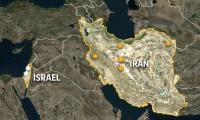November 29 and Pakistan’s polycrisis
The thing to remember as Pakistan melts down in anticipation of November 29, 2011 is that this whole fiasco was eminently predictable. How predictable? In December 2020, almost two years ago – long before the Taliban ascendancy in Kabul, long before Imran Khan’s absolutely bogus “Absolutely Not”, and long before Notification Gate removed the low thread-count lawn ka jora from the One Page – I wrote in these very pages, a two-part appeal for a Grand National Dialogue.
In part one, ‘Urgent: A grand national dialogue’, I wrote: “Pakistan needs a grand national dialogue because there is a foundational lack of consensus about the rules of the game. Those that have the power to flout the previously agreed rules, such as the 1973 constitution and the 18th Amendment made in 2010, do so with impunity. And this impunity is not new.”
In part two, ‘How to hold a grand national dialogue’, I wrote: “If a grand national dialogue is about saving Imran Khan, or springing politicians out of jail, or getting rid of Usman Buzdar, it is not a grand national dialogue. It is a renegotiation of the terms on which the Pakistani elite share power with each other. So, renewal of the capacity of the Islamic Republic to protect its people and to enable them to achieve their potential has to be reiterated as a core objective.”
As December 2020 turned into December 2021, and Imran Khan lost all the substantial good will that had been laid at his feet by successive military leaderships in Pakistan over a process that has now lasted for almost a decade and a half, not much changed – except that the incentives of the few remaining adults in the PTI leadership were aligned more and more robustly with a grand national dialogue.
The only problem? The Noonie and Pipliya sharks saw the blood in the water, and they went in for the kill. “Screw dialogue” or in the words of Zach de la Rocha, “we don’t need the key, we’ll break in”. Sure, there is that whole validity of the process of the vote of no confidence, but if ever there was dissonance between the democratic spirit and democratic deed, it was the removal of Khan. Everyone knew Kaptaan was being punished for falling afoul of his benefactors. No one resisted being used by them. If it sounds familiar to the PTI faithful, this for good reason. It is how your party came to Islamabad at the Azadi Dharna in 2014 and never really left; 2018 was merely the coronation of a crowning that began in 2011.
In keeping with the spirit of I-told-you-so: I told you so. I told you so on December 8, 2020, when PTI ministers laughed off a grand national dialogue, confident that my concerns about the weakening of Pakistani democracy, federalism and pluralism were all overblown.
I told you so on November 16, 2021, in ‘A crumbling triumvirate’, when I wrote: “Thus the elite compact in Pakistan. The post Notification Gate next iteration of the ruling elite nexus may be one in which all the names and faces are the same, or in which some of the names and faces are the same, or in which none of the names and faces are the same. But which institutions rule this country, how this rule is exercised, and the outcomes that this ruling elite nexus produces for Pakistan and Pakistanis do not seem to be headed for much change.”
After the change in the ruling elite nexus, I told you so again on May 24, 2022, a few weeks after Prime Minister Shahbaz Sharif had “taken over”. This time, I warned of the perils of leaning into the whispers about an ‘Extended caretaker setup?’: “Talk of an extended caretaker is dangerous and, if actualised, will undermine Pakistan’s progress as a democratic nation… Caretakers have one role, and one role only: enable the conduct of free, fair and credible elections. When they overstep this role – whether because they have support to do so from Rawalpindi, or a more circuitous path via the judiciary – they end up deoxygenating the space for incoming elected governments to fulfil their promises and potential.”
Since that time, the Pakistani economy has imploded, and serious people have been reduced to having to cheerlead (quite rightly) the securing of an IMF tranche. One of the country’s most widely trusted journalists was shot in the head from virtually point blank range, and killed. Arguably, the country’s most popular political leader was shot at by multiple shooters at a political rally. And the country’s conscience and sense of decency was stirred by a tearful press conference of former JUI F leader, former PTI railways minister and serving senator, Azam Khan Swati – as he recounted the attempts to intimidate and humiliate him and his family.
All this has renewed talk of an extended caretaker setup that will see the country through this period of instability and uncertainty. But let’s not pretend this renewed chatter is innocent. It cannot be. Here too: I told you so. On September 20, 2022, I wrote in ‘Institutional overextension’ that: “…there are two things, above all, that Pakistan’s military leadership needs to ensure in the coming weeks and months. The first is an orderly and hiccup-free transition from the current leadership to the new leadership group at the stipulated end of the current chief’s term in November. The second is a steady and irreversible withdrawal of the military from civilian life across the country.”
Talk of the current military leadership needing to ‘step in’ and steady the ship and become a guarantor of stability through an extended caretaker setup that engages in substantial changes such as a reconfiguring of the Election Commission, for example, is really just code for a circuitous path to yet another extension for the current chief of the army staff. This is a formula for national hara-kiri, or as the Japanese call it: seppuku.
The current catastrophic national condition in politics and economics is a product of implicit and explicit military intervention. We got here because of the people that have been running things. The formula for getting out of this complex and intricate weave of what Adam Tooze has called “polycrisis” cannot be the formula that got us into it. Any pretext that ends up reinforcing decision-making and arbitration to the same parties that have been making decisions and arbitrating between politicians is essentially guaranteeing the permanence of Pakistan’s polycrisis.
Optimists like me may be expected to focus on the positive – like the almost miraculous coherence with which Prime Minister Shehbaz Sharif, Climate Change Minister Sherry Rehman, Foreign Minister Bilawal Bhutto Zardari, Planning Minister Ahsan Iqbal, and State Minister Hina Rabbani Khar have helped prepare Pakistan for the COP27 meeting in Egypt. Already Pakistan’s climate diplomacy has helped drive pioneering conversations at COP27on loss and damage.
All of this has happened whilst the national discourse has been in full meltdown mode – for almost as long as the super floods of 2022 have been ignored (for those keeping score, that has been the case since July 2022). But all this only reinforces the need to be clear eyed. If this is what can be done during a polycrisis, imagine what the true potential for the country’s diplomacy really is. There can be no room for rosy-eyed optimism as far as another extension – by any other name – for the current military leadership. More of the same in Pindi will deliver more of the same for Pakistan.
Besides, the central problem in politics now is that Imran Khan – the most toxic political figure in the country – is now not only the most popular, but also the one with enormous and unprecedented moral authority.
That is what happens when you arrest, torture, and intimidate former cabinet members. That is what happens when journalists (even partisan ones) with millions of devoted followers are suddenly forced into exile and are assassinated. That is what happens when someone tries to kill the most popular politician in the country.
This ‘problem’ cannot be solved by those that created it in the first place. Pakistan needs fresh faces and fresh approaches. The place to start is where it all began. It is time for Prime Minister Shehbaz Sharif to announce the next army chief and start the healing.
The writer is an analyst and commentator.
-
 Nvidia’s New Specialized Chip Aims To Accelerate AI Processing Speeds
Nvidia’s New Specialized Chip Aims To Accelerate AI Processing Speeds -
 Demi Moore Was Left With ‘intense’ Illness After ‘The Substance’
Demi Moore Was Left With ‘intense’ Illness After ‘The Substance’ -
 How AI Can Read Your Thoughts Without You Speaking?
How AI Can Read Your Thoughts Without You Speaking? -
 Elon Musk’s Grok Faces Scrutiny From Federal Agencies Amid Pentagon-Anthropic Standoff–Here’s Why
Elon Musk’s Grok Faces Scrutiny From Federal Agencies Amid Pentagon-Anthropic Standoff–Here’s Why -
 ‘I Saw Nothing’: Bill Clinton Denies Knowledge Of Epstein’s Crimes In House Testimony
‘I Saw Nothing’: Bill Clinton Denies Knowledge Of Epstein’s Crimes In House Testimony -
 Jim Carrey Makes Surprising Confession About Rarely Seen Girlfriend Min Ah
Jim Carrey Makes Surprising Confession About Rarely Seen Girlfriend Min Ah -
 How Michael J. Fox Helped Harrison Ford With His Parkinson's Monologue
How Michael J. Fox Helped Harrison Ford With His Parkinson's Monologue -
 AI Safety Battle: Anthropic Fires Back At Pentagon After US Military Flags It ‘supply Chain Risk’
AI Safety Battle: Anthropic Fires Back At Pentagon After US Military Flags It ‘supply Chain Risk’ -
 OKC Vs Nuggets: NBA MVP Shai Gilgeous-Alexander Scores 36 In Fiery Overtime Win
OKC Vs Nuggets: NBA MVP Shai Gilgeous-Alexander Scores 36 In Fiery Overtime Win -
 Eric Dane's Biggest Regret Comes To Light Following Days Of His Death
Eric Dane's Biggest Regret Comes To Light Following Days Of His Death -
 Israel Launches Attack On Iran's Capital And Declares State Of Emergency
Israel Launches Attack On Iran's Capital And Declares State Of Emergency -
 At Least 15 Dead After Military Plane Carrying New Banknotes Plunges Out Of Control In Bolivia
At Least 15 Dead After Military Plane Carrying New Banknotes Plunges Out Of Control In Bolivia -
 OpenAI Partners With Pentagon After Trump Bans Anthropic AI
OpenAI Partners With Pentagon After Trump Bans Anthropic AI -
 Trump Orders Federal Agencies To Stop Using Anthropic AI Tools
Trump Orders Federal Agencies To Stop Using Anthropic AI Tools -
 Shocking Details Emerge In Martin Short’s Daughter Katherine's Death Investigation: 'Kept To Herself'
Shocking Details Emerge In Martin Short’s Daughter Katherine's Death Investigation: 'Kept To Herself' -
 Daniel Serafini Gets Life Without Parole In In-laws Murder And Attempted Murder Case
Daniel Serafini Gets Life Without Parole In In-laws Murder And Attempted Murder Case



